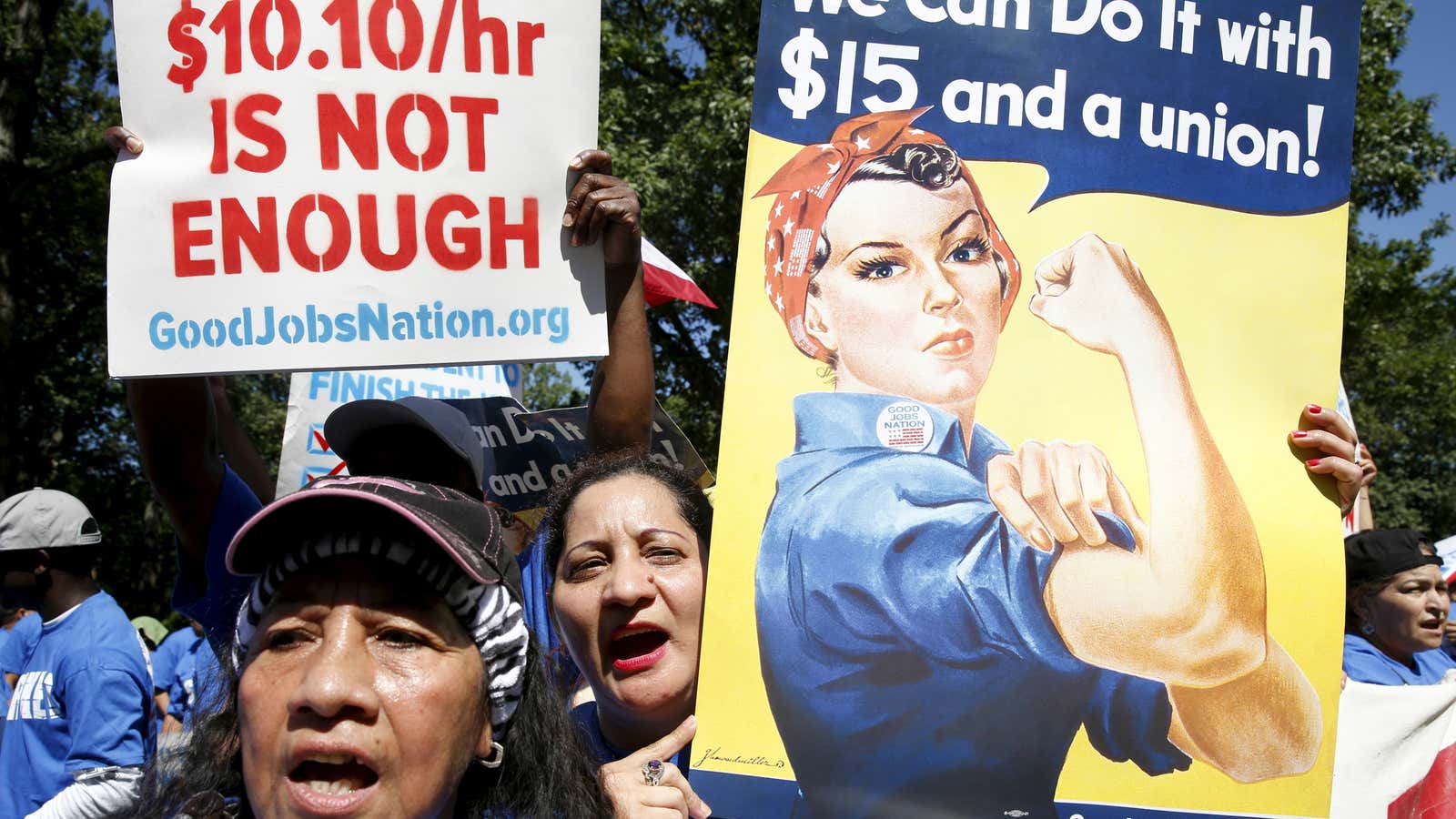On Jan. 1, 2019 many low-income workers in the US will be getting a raise. Minimum wage increases go into effect on or around New Year’s Day in 21 states and 19 cities, according to data collected by the progressive nonprofit National Employment Law Project.
About half of these places will see an increase due to a one-time bill passed by voters or legislators that requires a wage hike. For example, Arkansas voters approved an initiative last year to increase the minimum wage to $11.00 an hour by 2021, beginning with an increase to $9.25 on Jan. 1, from $8.50 currently. The other states will increase wages due to laws that require the minimum to increase with the cost of living. For example, in Florida the minimum will go up to $8.46 from $8.25, to match inflation.
States raising the minimum wage on or around Jan. 1, 2019* (not including cost-of-living adjustments)
*These numbers reflect the highest minimum wage for this state. Sometime there is a lower minimum wage for tipped workers or workers at small companies
Of the 13 cities that will increase the minimum wage on Jan. 1 not as a result of inflation adjustment, 10 are in California. Cities across California, particularly those near Silicon Valley, are raising the minimum wage in the hopes that it will help lower-income workers get by in the ever-more-expensive area.
Cities raising the minimum wage on or around Jan. 1, 2019* (not including cost-of-living adjustments)
Economists disagree about the impact of minimum-wage increases. While all concede that it raises the wages of those who have jobs, studies have shown different impacts on overall employment. In some cases, they have found that higher wages decreases the number of jobs available, as certain employers would rather not have another staff member than pay the minimum salary. Other studies have found that it has little effect on the number of jobs available, with few employers unable to pay the minimum.
What we do know is that those who keep their jobs are certain to be better off in 2019.
